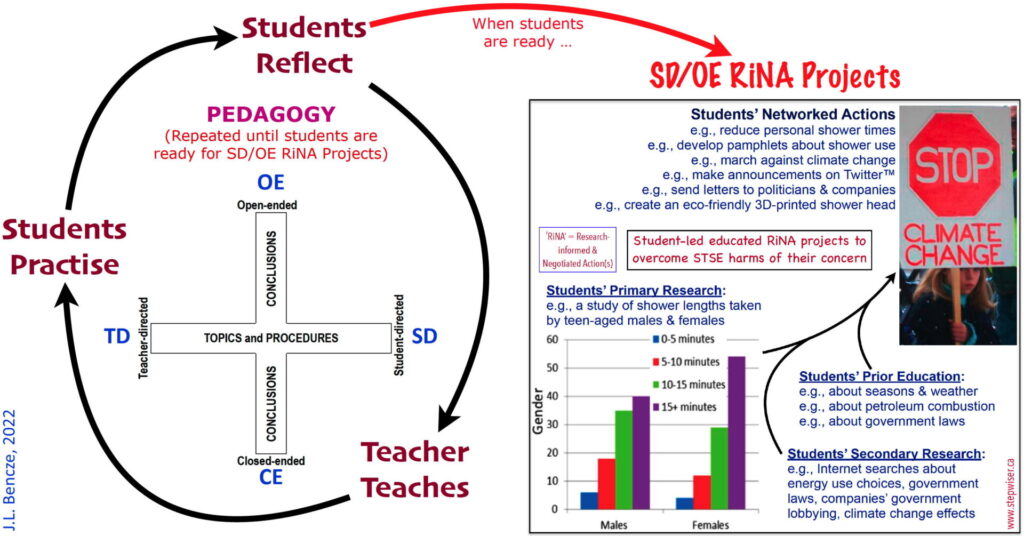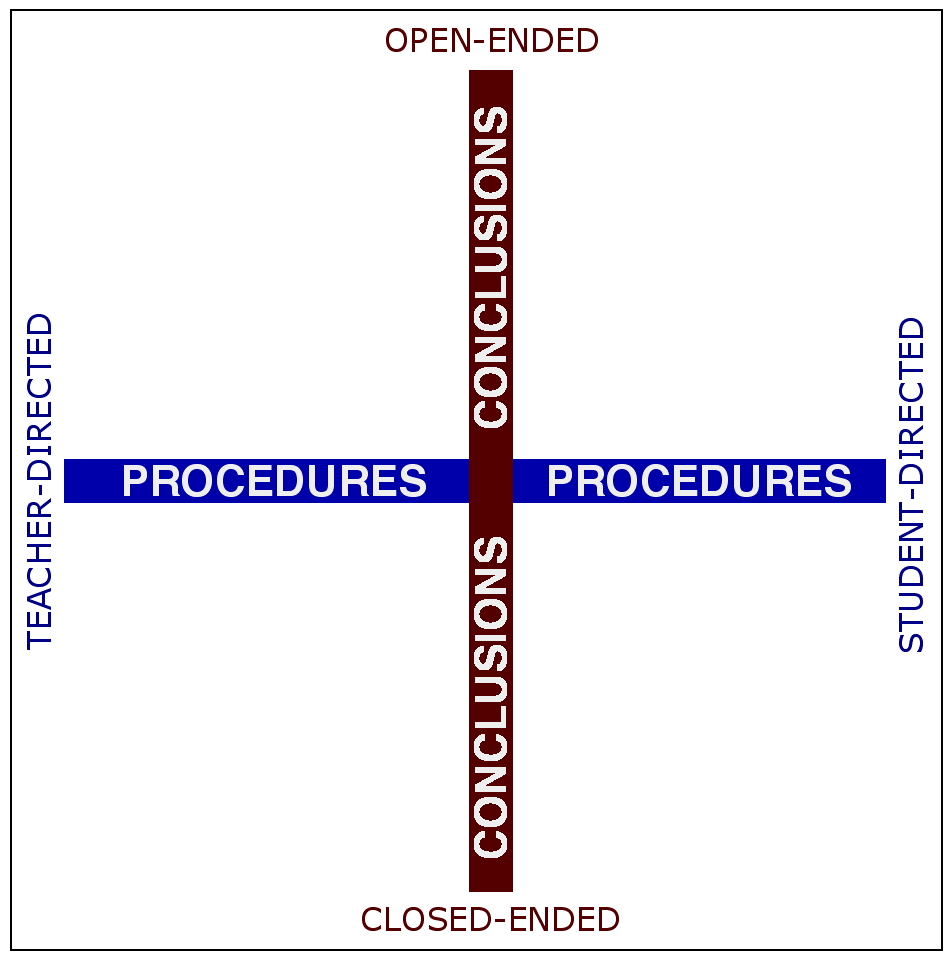Reforms
Needs for Vastly Increased Eco-social Wellbeing, Locally & Globally
Introduction
It is apparent that – as illustrated at right/below – fields of STEM and STEM education largely collaborate, along with myriad other living, nonliving & symbolic entities, to support ‘elite’ (most financially) in ways that appear associated with numerous risks &/or harms – like the climate crises, species losses, privacy and autonomy losses from surveillance and artificial intelligences, cancers from manufactured foods, etc. After elaborations of claims like those above, this page provides some possible solutions-albeit difficult, given current complex and problematic sociopolitical contexts.
Also see: my extensive Position Statement & one of my talks about this.
Rationale for Dispositif Reform
STEM fields appear captured by pro-capitalist dispositifs
As claimed by Dr. Sheldon Krimsky, fields of science & technology (or STEM) do not operate in isolation of other societal members (as depicted here); but, rather, often are heavily-influenced by funding sources and related facilitators (e.g., governments). As depicted at right/below, for example, ‘science’ (World –> Sign translations) often is compromised by, for example, having their findings ‘muzzled’ or their research de-funded. Meanwhile, fields of ‘technology’ (Sign –> World translations) often are biased in favour of profits through often-harmful technologies (e.g., petroleum-fueled energy systems). Very broadly, Ziman (2000) suggested that supposedly idealistic ‘norms’ of practices in the sciences often are compromised – like here. Also see: Science in the Private Interest; Impure Cultures; and, Science-Mart.
Pro-capitalist STEM Education
Analysts like Blades et al., Sharma and Hoeg & Bencze suggest that STEM education fields often – in synchrony with STEM fields – appear (as here) to support goals of pro-capitalist dispositifs, by supplying (broadly): i) expert STEM workers and ii) compliant workers & consumers.
Also see Story of Stuff Project Site
Science & Technology Education as a ‘Selection & Training Camp‘ for Potential ‘Producers’
Science/STEM education systems often seem overly-focused on identifying & educating possible knowledge producers; e.g., STEM professionals. Selection often seems biased, based on certain narrow – explicit or implicit – pre-specifications.
Science & Technology Education as an ‘Apprenticeship for Consumership‘
For many students, science/STEM education often promotes consumerism like here (e.g., as compliant labourers & rabid purchasers) – through at least the mechanisms listed here and elaborated below:
- conformity via standardization;
- consumerism via saturation;
- confusion via intensification;
- reverence via idealization;
- dependence via regulation;
- disempowerment via individualization.
Roles for Education in Ecojustice Reforms
Alternatives to Pro-capitalist Science & Technology (STEM) Education
Socioeconomic systems like those influenced by neoliberalism and authoritarianism are very resistant to change, as with capitalist advancements during the CoViD-19 pandemic. Their resilience appears due to abilities of elite to orchestrate most living & nonliving things into complex and vast cooperative networks (‘dispositifs‘). Those (e.g., here) wanting societies oriented, instead, to ideologies like ecojustice (attacking ideologies like these) must, therefore, promote development of new, widely-accepted, dispositifs. That will not likely be easy. However, given that technoscience developments appear to co-affect societal zeitgeists (Jasanoff), technoscience education must be considered a main route to dramatic socioeconomic change.

Apparently, learners can only ‘construct’ new ASK if they possess (e.g., in their minds & bodies) ‘resources’ – such as new knowledge (e.g., about natural selection) that has been directly taught to them because they might struggle to construct them on their own. Because of such limits on constructions, the STEPWISE pedagogical schema prioritizes different choices in terms of Lock’s (1990) control-of-learning framework at right/below. Choices made in this regard prioritize democratic principles, like: direct teaching (TD/CE) about a plurality of perspectives and practices and opportunities for personal choices (SD/OE) – both of which seem compromised in many societies. Under influences of neoliberalism, for example, governments have cooperated with many supportive entities, including transnational ones like the WTO, to prioritize values like competitive possessive individualism. In this paradigm, competitions appear unfair. For example, emphases on student self-discovery in inquiry-based learning approaches seem discriminatory and STEM education omissions or sanitization of harms that appear largely due to neoliberalism can compromise many students’ democratic rights.
By using teacher-directed, closed-ended approaches in synchrony with more student-directed & open-ended application activities – about apparently problematic neoliberal influences on STEM (and related) fields and much more and sample RiNA projects, it is my hope that students may develop and implement sociopolitical actions that may disrupt and perhaps dramatically transform societies of control (see video here) in ways promoting greater ecojustice. Drawing on concepts in A Thousand Plateaus, we may imagine students acting to promote replacement of hierarchical societies with those more like rhizomes; e.g., in eclectic ways. To help with this, as recommended Che Guevara, Paulo Freire, and the Pedagogy of Revolution, democratic educators must combine direct critical instruction with students’ independent opportunities for reflective practice (praxis) – which is reflected in STEPWISE emphases on Student-led RiNA Projects.
Also see: Circular Economics.


